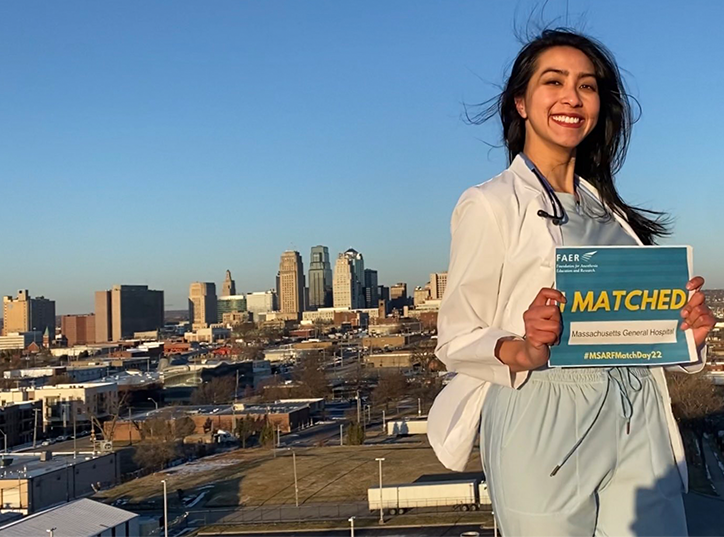KCU medical student proves growth doesn’t happen in the comfort zone

For fourth-year Kansas City University (KCU) osteopathic medical student Nicolette Duong, medicine is more than a profession — it’s a commitment to advocacy, dignity and showing up when it matters most.
Duong’s passion for underserved communities began as an undergraduate volunteer in rural Peru, where families walked for days to reach care. This experience is mirrored in U.S. hospitals where underserved patients often seek help only in crisis.
“The parallel was clear: health inequities transcend borders,” Duong said. “Access to care is a human right.”
To help, she pushed the traditional boundaries as a sophomore at the University of Florida and founded a nonprofit to address food insecurity and launched community-based health education initiatives. Her research focused on helping communities in Peru function with limited resources.
Duong’s patient-centered mindset took shape in her first year of medical school through her leadership of KCU’s Student-Run Clinic, where she launched FreshStep, an initiative offering foot exams, socks and shoes to unhoused individuals. The program expanded access beyond standard medical appointments and provided medical students with opportunities to interact with and educate the community.
She recalls a moment during a FreshStep event when a patient, unhoused for over a decade, shared his story.
“At one point, he looked up and said, ‘No one’s touched my feet in years.’ That moment reminded me that true healing begins with presence,” Duong said. “I want to be a physician who sees the whole person, not just the illness.”
Throughout her third-year clinical rotations, Duong was exposed to critical care patients in internal medicine, anesthesia and emergency medicine cases. That experience, alongside a Harvard Anesthesia Research Training Fellowship at Massachusetts General Hospital where she studied pulmonary and anesthesia critical care cemented her decision to pursue a residency with a critical care fellowship.
“Patients often end up in critical care because their basic physiologic needs aren’t addressed early on,” Duong said. “Understanding that connection has shaped my approach to medicine.”
Currently immersed in a pulmonary and critical care rotation, Duong is building on a foundation she’s been deliberately shaping since early in medical school.
“No matter where you end up, the important thing is to show up, listen and be present in the community you serve,” she said. “Meaningful impact often comes from stepping outside your comfort zone.”
